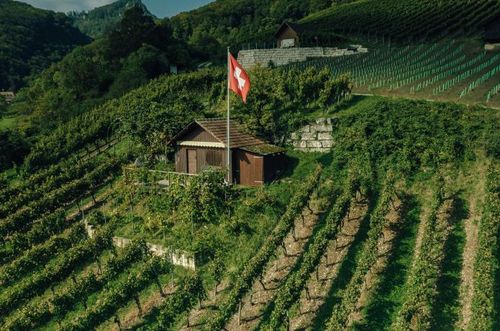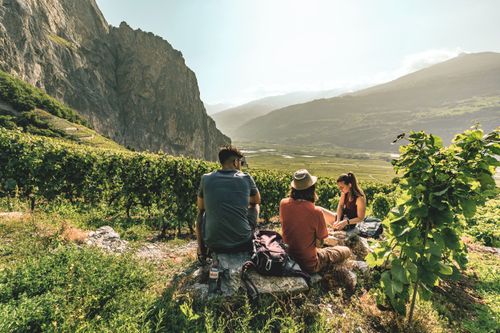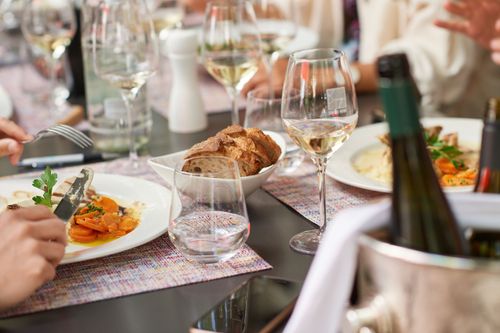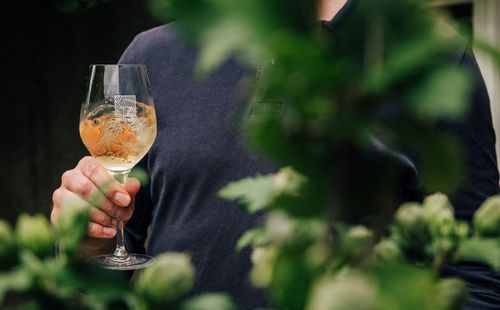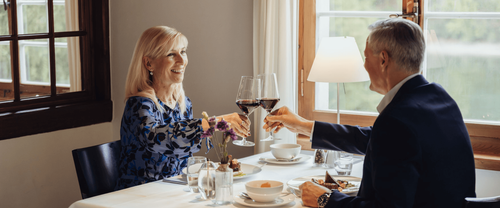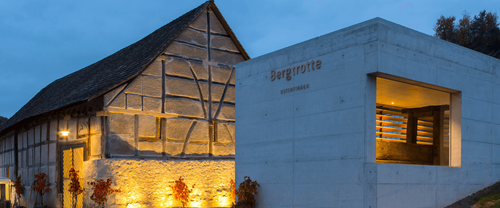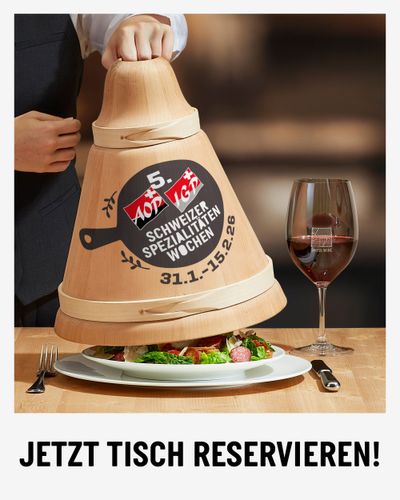Wine with attitude: why Raphael Guggenbühl only serves what he knows
Raphael Guggenbühl runs the Zurich restaurant Rechberg 1837 together with his childhood friend Carlos Navarro and his brother Alexander Guggenbühl. It is a place that is uncompromisingly committed to Swiss products, craftsmanship, and sustainability. In this interview, he talks about his personal journey to wine and his deep connection to Swiss winemakers.
Raphael Guggenbühl, how did you get into wine?
My first contact was at the age of 15, when I was working in the service industry at a five-star hotel. Back then, it was purely about enjoyment. Later, I worked in the hotel industry – as a concierge, deputy director and at reception. Wine was present in my private life, but not professionally. That only changed when we opened Rechberg 1837.
What was the turning point?
I was overwhelmed. Wine merchants came by every day, claiming that their wine was the best and most sustainable. But I had no idea if that was true. I could only trust their words, and that wasn't enough for me. So I began to study viticulture, history, and production intensively.
So you educated yourself?
Yes. I learned a lot from books and documentaries, for example about the history of winegrowing in Switzerland. Then came a key moment: Zurich winemaker Stephan Herter visited our restaurant. The conversation was so inspiring that I delved deeper into the world of wine. Another example was a sparkling wine by Patrick Adank. Everyone said it was ‘extra salmon-coloured’.
But Patrick himself explained that he had left it on the mash for too long – a mistake he openly admitted. I was impressed by his honesty. Since then, we have been selling this wine as our main sparkling wine.
How do you select your wines today?
Exclusively through personal contact. We visit every winery ourselves. We look at how the vines are worked, whether herbicides are used, how the grapes are pressed. We want to know: is it a sales pitch or a genuine commitment to nature? We only order from distributors in exceptional cases.
Why is this personal contact so important to you?
Because you can only understand the intentions behind a wine through direct conversation. It's not just about biodynamics, but about a conscious approach to nature and genuine conviction. If we don't feel the passion for wine from a winemaker, it's a no-go for us.
Are your guests even interested in this depth?
For many guests, it's a nice bonus, but for us it's central. We try to push boundaries in every area of the restaurant, for example by upcycling broken plates and glasses. We want everything in the restaurant to have a story.
And how is your Swiss wine selection received today?
Very positively now. Ten years ago, many people only wanted French, Italian or Spanish wines. Now our guests are realising how good Swiss wine is. The quality is often better than in neighbouring countries. Many Swiss winemakers work with enormous care and low yields. Most of our vineyards are only two to five hectares in size, which is rare in retail.
How do you introduce unknown wines to your guests?
By offering them in a targeted manner – for example, with our ‘wine journey’, where a matching Swiss wine is served with each course. We also encourage guests to visit our wine room. Seeing the bottles makes people curious.
Let's talk about Merlot: what is your personal opinion of this grape variety?
I personally don't drink Merlot very often; my heart belongs to Pinot Noir. But I appreciate elegant Merlots that impress with their power and depth. What I find particularly exciting are the differences: from heavy, tannin-rich Merlot with steak to fine, almost delicate Merlot with soft cheese, anything is possible.
And how would you classify Ticino Merlot – in comparison to international Merlot?
Ticino offers an enormous range. Some Merlots there can hardly be compared to international ones. I think one should distinguish less by region and more by winery. Merlots are also becoming increasingly interesting north of the Alps. The climatic conditions in German-speaking Switzerland are now just as good for Merlot as in Ticino.
Are there any dishes at Rechberg that you specifically pair with Merlot?
We don't have any set dishes; we cook with whatever is currently growing in the fields and whatever the farmers have to offer. We work exclusively with biodynamic Swiss ingredients – no pepper, coffee, or vanilla. As a rule, we choose the wine to go with the dish, not the other way round.
We know which wineries tend to produce elegant or powerful Merlots and make our decision accordingly.
If you could only drink one Swiss wine, which would it be?
Pinot Noir, without a doubt, because of its elegance and complexity. And for white wine, Completer: the grape variety is historically fascinating, and a mature Completer is a real sensory experience.
How do you see the future of Swiss wine?
In terms of quality, we are at a very high level. Many winemakers still work entirely by hand, which is often only claimed elsewhere. I believe Swiss wine will become increasingly sought-after internationally. This could even become a problem in the long term: we don't produce enough. And demand will continue to rise.
Related Articles
All the news about Swiss wines and exclusive reports.
To visit our site, you must be of legal drinking age in your country of residence.

